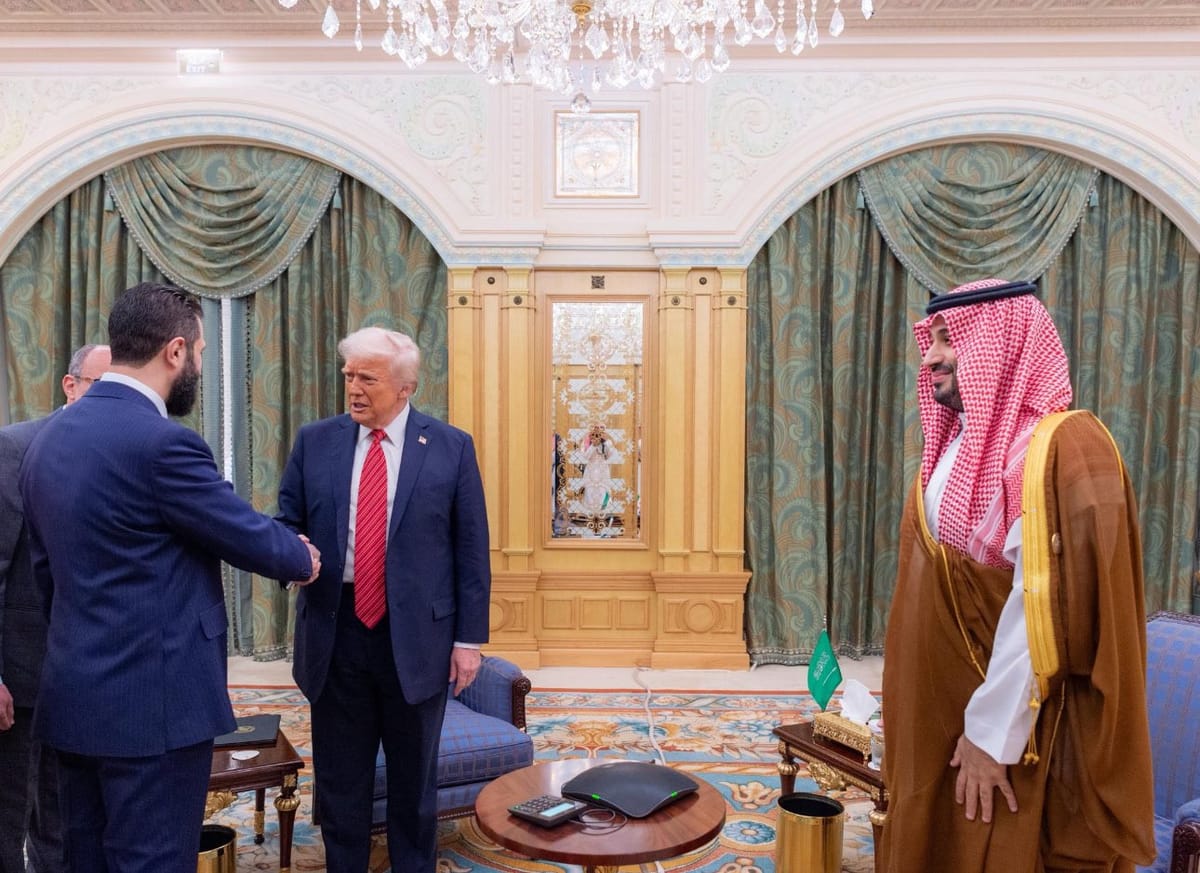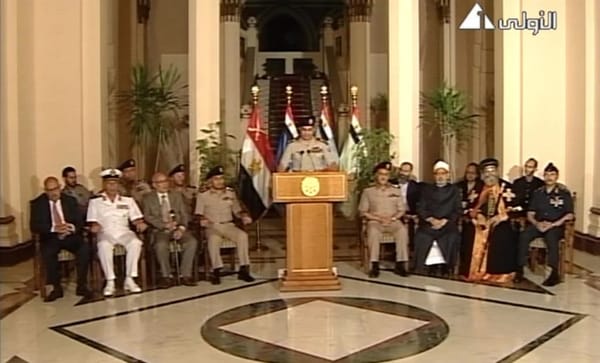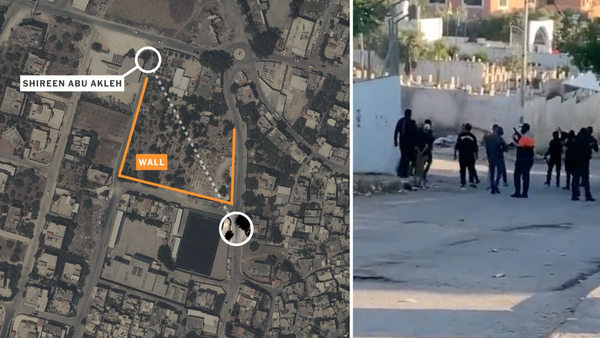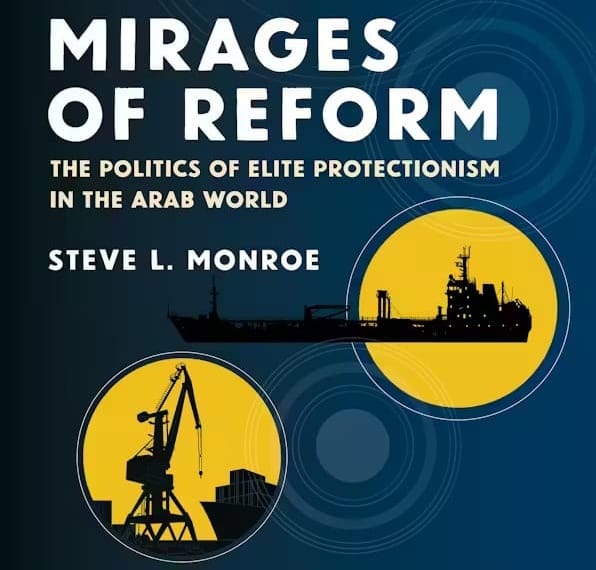Trump did Riyadh. What did we just see?

On Monday, I published a piece in Foreign Affairs laying out all the strategic issues and context to Trump's visit to Saudi Arabia, the UAE, and Qatar. Now that he's made his big speech in Riyadh, and has taken off for Doha, how did it all work out?
Those hoping for big policy announcements had to be disappointed. The speech didn't deliver much in terms of actual policy changes. The promise to rename the Persian Gulf the Arabian Gulf as an applause line seems to have vanished into the ether. He talked about how great the Abraham Accords were and how much he'd like to see Saudi Arabia join, but made no announcement that they would. He talked about how awful things were for the people of Gaza but said nothing in support of or in opposition to Israel's impending offensive and didn't repeat his calls to depopulate Gaza and build resorts. He claimed victory over the Houthis in Yemen, to an audience full of people who understood very well that the US had not defeated the Houthis (and that their agreement did not extend to ceasing attacks on Israel). The audience heard more about his election victory, how terrible Joe Biden had been, and lies about his tarrifs and how great the US economy is doing (standard stump speech/TV rambling stuff) than it did about Israel and Gaza.
A lot of money changed hands, though – both official promises of arms sales and investments, and all the corrupt personal enrichment on the side for Trump, Elon Musk, and the other oligarchs of the American royal court. The official readout on Trump's visit to Saudi Arabia focuses almost exclusively on the economic dimensions, particularly the promise of $600 billion in Saudi investments in the United States (not the $1 trillion Trump had asked for) and "the largest defense sales agreement in history—nearly $142 billion, providing Saudi Arabia with state-of-the-art warfighting equipment and services from over a dozen U.S. defense firms" (it will be very interesting to see if any of those sales, or the new arms sales to the UAE and Qatar, trigger Israeli objections over its traditional qualititive military advantage in military technology).
The biggest issue everyone was watching was, of course, Iran. His comments were actually interesting. He talked about his interest in a deal but didn't announce one:
"I want to make a deal with Iran. If I can make a deal with Iran, I'll be very happy if we're going to make your region and the world a safer place. But if Iran's leadership rejects this olive branch and continues to attack their neighbors, then we will have no choice but to inflict massive maximum pressure, drive Iranian oil exports to zero, like I did before... The choice is theirs to make. We really want them to be a successful country. We want them to be a wonderful, safe, great country, but they cannot have a nuclear weapon. This is an offer that will not last forever. The time is right now for them to choose – right now, we don't have a lot of time to wait."
Notably absent from the speech: any new announcement of a nuclear agreement or progress towards such a deal... and any threat of war if the negotiations fail. The former was always likely, especially after little progress was reported in the fourth round of the Oman talks last week. The latter must be downright shocking in Israel and in pro-Israeli think tank circles – but is very much in line with my Monday Foreign Affairs take.
The most important policy announcement came as a throwaway line at nearly the very end of a long, rambling speech – the lifting of sanctions against Syria:
“In Syria, which has seen so much misery and death, there is a new government that will hopefully succeed in stabilizing the country and keeping peace. That’s what we want to see... after discussing the situation in Syria with the crown prince, your crown prince, and also with President Erdogan of Turkey, who called me the other day and asked for a very similar thing, among others and friends of mine, people that I have a lot of respect for in the Middle East, I will be ordering the cessation of sanctions against Syria in order to give them a chance at greatness.The sanctions were brutal and crippling and served as an important, really, an important function nevertheless at the time, but now it's their time to shine. It's their time to shine. We're taking them all off and they're going to have – I think they're going to have, based on the people and the spirit and everything else that I'm hearing about.
That's unambiguously good – building on some key waivers which had already been provided, but a sharp strategic reversal from the signals coming out of the White House and the State Department over the last few months, which had suggested that the administration viewed the new Syrian government solely through the lens of counterterrorism. (Perhaps certain White House officials had been exaggerating their influence on an issue Trump couldn't care less about.) It was frankly astonishing - downright shocking, let's be honest – to see the American president shaking hands with the former leader of al-Qaeda in Syria... and for that to actually be a positive development. What a world.
Lifting the Syria sanctions might seem like a random, insignificant move, or just a handout to MBS, to those who haven't been following the issue. But it's not. There has been a serious push for lifting the sanctions on Syria for a long time, as I wrote about most recently last month. Just last month, Sen. Elizabeth Warren and Rep. Joe Wilson sent a bipartisan letter to the Trump administration pushing for them to be lifted. Almost all humanitarian organizations had called for them to be lifted. And it's been a very big deal in Turkey and the Gulf, where the fear of sanctions violations has seriously inhibited engagements with the new post-Asad Syria.
The sanctions were imposed in response to the Asad regime's crimes against humanity and monstrous depradations against the Syrian people. Those sanctions probably contributed more than is generally recognized to the hollowing out of the Syrian state and deterioration of the regime which allowed HTS to sweep down from the northwest so easily and topple a regime that virtually everyone assumed had won the war and would survive in perpetuity.
With Asad gone, the sanctions had clearly outlived their purpose – and were severely limiting the ability of the new government to consolidate authority, begin reconstruction, or attract investment from the Gulf or anywhere else. Of course, various policy entreprenuers wanted to find ways to continue to use the sanctions to pursue new interests – in the same way that they kept US troops in southern Syria to combat Iranian influence after the original authorized mission of combatting the Islamic State had ended.
I had expected Trump to use lifting the sanctions as a bargaining chip, as his first administration had used the promise of removing Sudan from the "state sponsor of terrorism" list to get it to sign on to the Abraham Accords – maybe to push Sharaa to create a more democratic Syria, more likely to compel him to normalize relations with Israel (which would probably require a less democratic Syria to force angry Syrians to accept it). That still might happen – the White House spokesman claimed Trump had brought up the issue with him – but it's fascinating that it wasn't a precondition or used as leverage regardless of the consequences. It looks like he had a different transactional deal in mind, using it as a sweetener for building relations with Erdogan and MBS and implicitly handing the Syria file over to them. Where that leaves Israel, which has been occupying territory in southern Syria and bombing on the pretense of defending Druze in Syria, is very much an open question.
For all of that, it's still difficult to fathom the optics of Trump's personal meeting with Sharaa. Under his nom de guerre Abu Mohammed al-Jolani, Sharaa had been the leader of Jubha al-Nusra, the Al-Qaeda branch in Syria, and had a long record of fighting US troops during the Iraqi insurgency. This isn't like Muslim Brotherhood figures such as Egyptian President Mohammed el-Morsi, where analysts tied themselves in knots over the relationship between the Brotherhood and jihadists – Jolani/Sharaa was unambiguously on Team Jihad. That doesn't mean he hasn't changed, after years of governing Idlib province and now as president of Syria. In a series of important articles (and a forthcoming Hurst book), Jerome Drevon and Patrick Haenni have laid out a compelling case for how Sharaa and HTS evolved beyond jihadism (and where they did not). Trump, for his part, called Sharaa a "young, attractive guy — tough guy...He's got a real shot at pulling it together."
But I don't think any experienced Middle East watcher can claim to not be shocked by the photo of Trump shaking hands with a former al-Qaeda insurgency leader, now president of Syria, with MBS encouraging him to do so. It's a good image to call up whenever it seems like nothing can ever really change in the Middle East.



